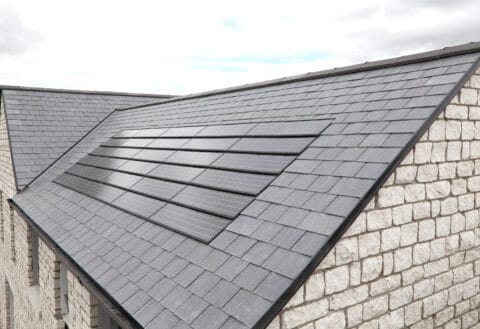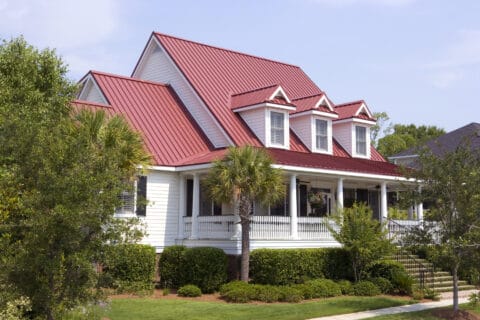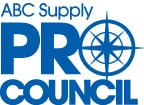What You Need to Know About Solar, Metal and Other Roofing Products
From synthetics and solar to metal and silicone, we asked ABC Supply associates throughout the country to tell us about the trends they see in roofing. Are you up on the latest products that contractors and homeowners are taking advantage of in 2020?
1. Synthetic Roofing
The demand for synthetic roofing materials is one of the biggest trends our associates see regardless of region. Synthetic materials are a good fit for homeowners who want a more durable product that replicates the wood texture and natural color of traditional slates or shakes.
Because synthetic material is polymer-based and made from plastic and rubber, it is considered easier to maintain and better resistant to the weather, and it has a longer lifespan (around 50 years).
Many synthetic roofing options also have Class 4 impact resistance. This is the toughest level of impact resistance that a roofing product can have, which is often an added benefit for homeowners and insurance companies that want a product more likely to resist hail damage.

Roofing is also classified by its fire resistance. Fire ratings include Class A, Class B, Class C and unrated. Class A is the highest rating and offers the best resistance against fire. Synthetic, metal, clay and concrete roofing products often have a Class A fire rating.
2. Green Roofs
Green roofs are also gaining momentum throughout the country. In Denver, an ordinance went into effect in January 2018 requiring buildings that are 25,000 square feet or more to include a green roof or combination of a green roof and solar energy.
In addition to their aesthetically appealing qualities, green roofs can help with stormwater management, improve air quality and reduce local temperatures by reducing the heat island effect.
3. Cool Roofs
In places like California, Title 24, the Building Energy Efficiency Program, is driving the demand for products that reflect sunlight and absorb less heat. There are a variety of products that can help contractors meet Title 24 regulations; they include materials that are light in color, use reflective paint, have a sheet covering, or have reflective tiles or shingles.
There are different cool roofing techniques suitable for the various types of low- and steep-slope roofing projects. For low-slope jobs, some of the most common applications
include built-up roofing, coatings and single-ply materials. For steep-slope jobs, there are a variety of metal, asphalt, shingle and tile options available that meet cool roof standards.

Like any job, the optimal materials for the project will depend on the building type and climate. Similarly, the benefits gained from cool roofing will vary by location. The most common benefits include reduced energy costs, increased roof longevity due to the decreased surface temperature and reduced local air temperatures.
4. Solar Roof Tiles, Shingles
Solar installations continue to grow partly because of building code changes like those out of California. Per the California Energy Commission, new single-family homes and multifamily units that are three stories or less will be required to have solar roof panels by 2020. Even in cities like Denver that don’t require solar, homeowners want product options that help them capitalize on the nearly 300 days of sunshine a year and save on their energy bills.
Manufacturers have evolved the types of solar roofing systems available. Instead of traditional, bulky solar panels that have long been the standard, there are now sleek solar roof tiles and shingles that are more aesthetically appealing to homeowners.
5. Metal Roofing
The demand for metal roofing products continues to increase year after year, and is requested by homeowners of all ages and home types. While the initial installation cost of metal can be two or three times more than asphalt, homeowners believe in the value of their investment, especially if they plan to stay in their homes long into the future.
 In addition to being low maintenance, coming in a variety of styles and having longevity, metal roofing is also highly reflective and insulative, which can save homeowners money by reducing their heating and cooling costs. The benefits of metal roofing often help to increase the overall value of the home.
In addition to being low maintenance, coming in a variety of styles and having longevity, metal roofing is also highly reflective and insulative, which can save homeowners money by reducing their heating and cooling costs. The benefits of metal roofing often help to increase the overall value of the home.
6. Silicone Roof Coatings
A final roofing trend that many of our associates see has to do with silicone roofing systems. Instead of re-roofing, many contractors and homeowners are opting to re-cover roofs with a silicone roof coating.
Silicone roofing requires a primer coat or two coats of the silicone product top coat. This type of roofing creates an impermeable membrane that resists leaks and won’t deteriorate or crack under harsh ultraviolet rays.
From climate and durability to cost and energy efficiency, there are many roofing materials available to contractors and homeowners to help them take advantage of the current trends in roofing.
Your local ABC Supply associates have the industry experience and know-how to help guide you in making the best decisions for your clients. They can also help you take advantage of manufacturers’ published rewards programs that are available for certain types of building materials.
Keep up with other 2020 construction industry trends by learning about siding and window trends. Remember to visit the ABC Supply blog throughout the year for additional resources to grow your business.
 The ABC Supply Pro Council consists of experienced associates from across the U.S. Its aim is to provide contractors nationwide with industry advice and insights to help them seize opportunities and overcome challenges they face as they manage successful businesses. Contractors can visit ABC Supply’s News & Events for additional tips and resources from the Pro Council.
The ABC Supply Pro Council consists of experienced associates from across the U.S. Its aim is to provide contractors nationwide with industry advice and insights to help them seize opportunities and overcome challenges they face as they manage successful businesses. Contractors can visit ABC Supply’s News & Events for additional tips and resources from the Pro Council.